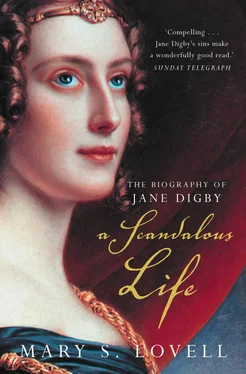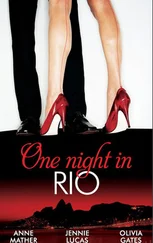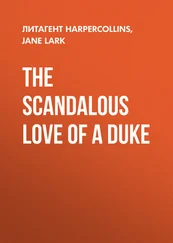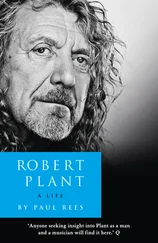1 ...8 9 10 12 13 14 ...27 Thursday 29th. To my infinite regret Lady E. left Holkham this morning. Since I parted with dear M[ary] I never felt more melancholy or vexed. Whist in the evening. Won.
Madden stayed on for a further fortnight, but, as quickly as he could decently escape, he returned (as he had come) by Mr Coke’s gig to Fakenham, then an uncomfortable seventeen-hour stage-coach journey to the Golden Cross Inn at Charing Cross and a hackney coach to his modest lodgings near the British Museum. 37 He was, it is obvious, still upset and bewildered, though whether he was suffering from Jane’s absence or a severe attack of guilt he failed to say. Madden was a hardworking young man, but he often felt life was unfair to him and spent a lot of time justifyng himself. When he failed to obtain hoped-for positions of employment, for instance, he would justify the selection of a candidate he believed inferior to himself as being due to his own lack of important connections. On the subject of his short relationship with Jane, though, he is surprisingly silent. There is no suggestion that he was seduced; no hint of self-justification for his betrayal to Mary.
When he posted down to Brighton a few weeks later to visit ‘dearest Mary’, Madden booked into the newly opened Albion Hotel. He walked disconsolately on the pier for an hour, and ascertained that Lady Ellenborough was not in town. Nor was Lady Anson, from whom he thought he might obtain news of Jane. His hopes dashed, he returned his heart to Mary. His diary entries become happier and, as the days pass, linger once more on his fiancée: ‘In a new white satin bonnet … she looked lovely … How very kind has fortune been to me … her I love more than all the world.’ 38
Madden and Jane never met again, and it is difficult to place the incident in context. It is unlikely that Jane set out deliberately to seduce him. Perhaps she was simply dejected and, enjoying the young man’s obvious admiration, allowed a simple flirtation to get out of hand. Or maybe she was miserable and hurt and, having been inexplicably rejected by both her husband and her lover, needed reassurance that she was still desirable.
For her affair with George Anson was in trouble. Indeed, there was no possibility that it would prosper in the long term, even supposing George had wished such a thing. Marriage to Jane was out of the question. The average divorce-rate was two a year at that date, and the publicity and expense surrounding such a course was usually sufficient to ruin the applicants and their families, socially as well as economically. A divorce would have finished George’s career in the army, and both cousins would have been aware that the closely linked Anson, Coke and Digby families would never countenance their union.
There is no evidence, however, that George ever regarded the affair as anything more than a light-hearted romance with his pretty cousin. It was Jane who elevated it to a more serious level. Her poetry implies no thought of divorce, nor indeed what might come of such a relationship, but in her romantic and impractical way she expected things to continue, and George to be faithful to her. Too late Colonel Anson recognised that this affair was not like his others and that Jane was not an experienced woman-about-town who could insouciantly treat a liaison for what it was, but a still-naive girl who was bound to be emotionally hurt. His way of handling the problem was to stay away from Jane, trusting she would recognise the implication of his actions. There is a strong possibility, too, that a senior officer or member of the family warned George that his behaviour would not do. Whatever the reason, there came a time when George was forced to tell her that their affair must end.
So when Jane made her visit to Holkham in March 1827 she was desperately unhappy. Unseasoned in the art of sophisticated dalliance, she had believed George when he had sworn to love her no matter what. She had never been refused anything, and could not believe the hurt occasioned by George’s rejection. Reared in the age of Byron, when strong emotions were often channelled into verse, she wrote a series of poems to George, attempting to convey her feelings. The following was written when she retired to her room on 19 March. According to Madden’s diary, she had spent that evening playing the guitar and singing Italian love songs.
… is passion’s dream then o’er
Is tenderness with love then fled?
So soon cast off, beloved no more.
Yes! Nought of all I’ve done for thee
Will e’er awake a pitying sigh
Or should my name, remembered be
E’en friendship’s tear thou wilt deny.
Twas then a crime to love too well!
Ah when did man e’er grateful prove
To her whose heart has dared rebel
Against the laws of man and God? 39
There are more poems in this vein, written during the weeks that followed. They spoke of ‘love betrayed by a soft voice and sweet accents’; of how easy it had been for her to forget ‘in one wild, thrilling kiss’ that ultimately it would have to end. And now the man she adored ‘though chill neglect has snapped the silver cord … in the heart in which he reigned’. 40 With her cousin, Jane found a sexual joy and companionship that was perhaps missing in her relationship with her husband. She had mistakenly believed her first love affair to be the love of her life.
Yet this makes the interlude with Madden all the more surprising. There were a few other occasions in her life when Jane indulged in casual sexual encounters, and it is obvious from diary entries in her middle age that she had a frank enjoyment of sex that was unfashionable in a world where brides-to-be were advised that sex was meant to be not enjoyed but endured. Her attitude has somewhat predictably led two (male) biographers to suggest ‘nymphomania’, but in fact her views on sex were similar to those of most women of the late twentieth century. Under normal circumstances Jane was faithful to the man with whom she was in love because, quite simply, each time she fell in love she believed the man to be the centre of her existence. Each time she thought that this man, this love, was the one she had been seeking. Between partners, however, she experienced no guilt in occasionally seeking ‘rapture’.
Madden made no secret of the admiration he felt from the moment she arrived. Jane was flattered and tempted. Her sexual mores were already established. Had her relationship with George been stable, she would never have looked at Madden, but given the situation that prevailed she accepted his admiration and the solace of his obvious desire. On the following day she recalled Steely’s moralising and was remorseful. The pattern would repeat itself occasionally in the future.
That visit to ‘dear old Holkham’ was to be almost the last. Many years later she would recall it in a letter to her brother Kenelm and explain how ‘Lord Ellenborough’s politics at that time prevented Holkham intimacy, which I always regretted.’ 41
Jane’s twentieth birthday passed and suddenly, to her joy, George was back in her life for a few weeks, but by 23 May they had parted again, this time – as he made clear – permanently. The danger of discovery by their families and the potential damage to George’s military career were too great. He left London and ignored her notes to him, returning them unanswered. Jane continued to pour out her distress in poetry. She accepted the reasons for which he said they had to part, but his instruction to her at their last meeting to ‘forget him’ she could not obey. She could never forget him, she wrote in anguish – even if they were never to meet again. 42
However, it was not to be as simple as that. Although she was not aware of it when she wrote her poem in May 1827, Jane was pregnant. And, as she would later confide to a friend, the father of her child was not her husband but George Anson. 43
Читать дальше











